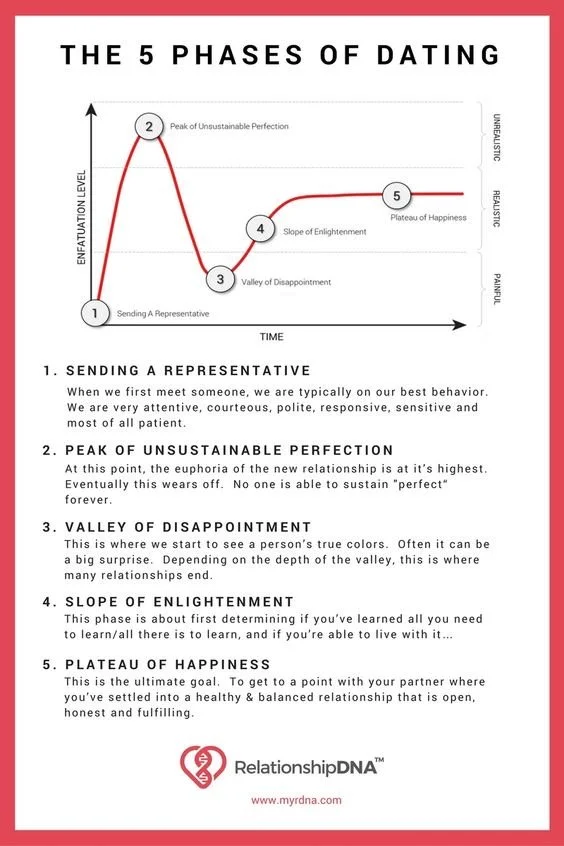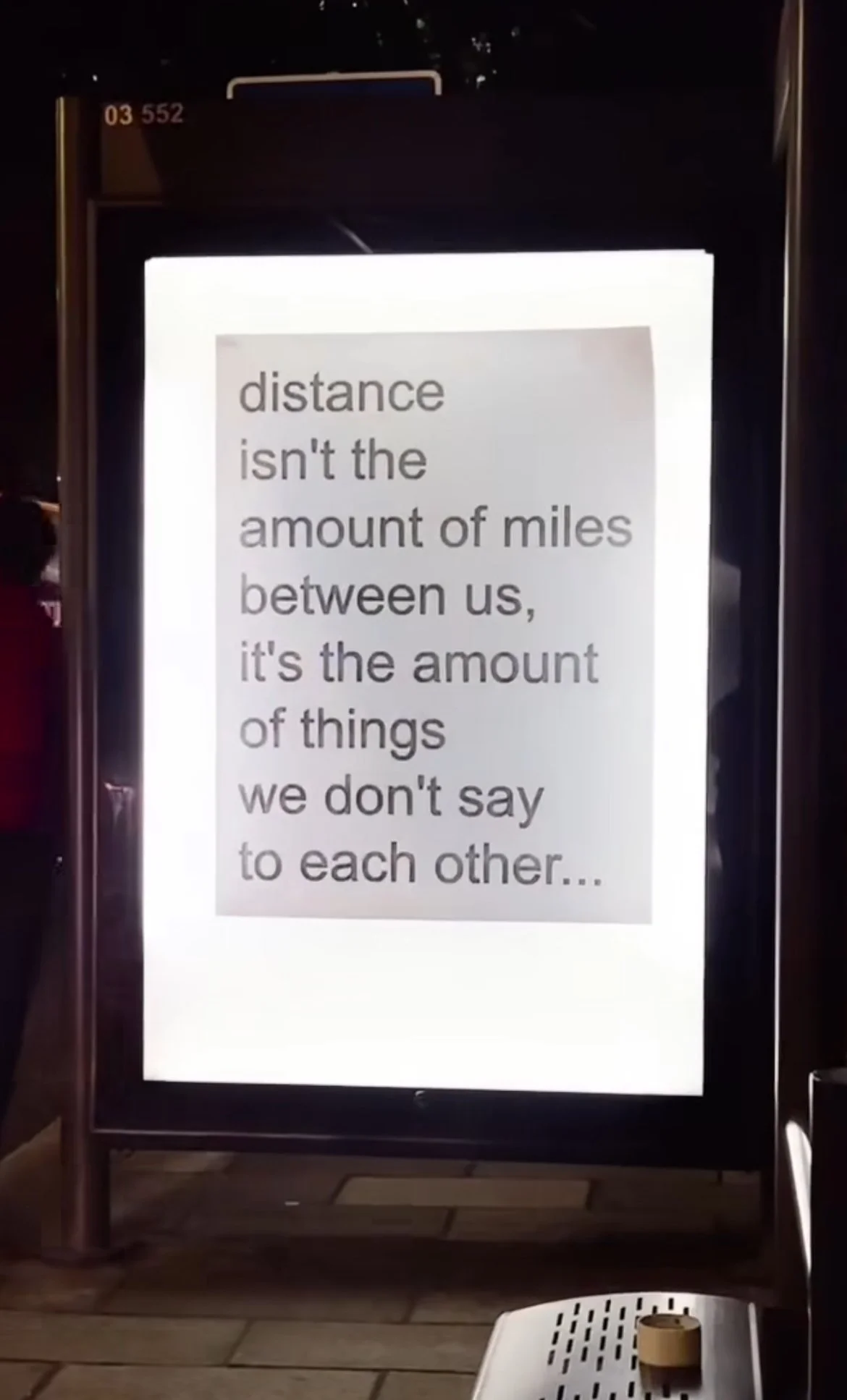Long-Distance, Long-Lasting? What LDRs Reveal About Relationships
Sometimes I get asked, “Kanica, do long-distance relationships work?”
But before I share my stance on LDRs, I’d like for you to take a moment to scan through the couples you know.
Do you personally know a successful long-distance relationship?
Can you think of a couple that started as an LDR, stayed together, and still seems happy today?
Because if you’ve never personally experienced a thriving LDR—or even witnessed one—it’s only natural to be skeptical.
If you’ve never seen a firefly, why would you believe in them—no matter how many people, books, songs, or lullabies insist they exist?
I’ll admit—I’m (positively) biased on this question.
Why? Because I’ve experienced a great long-distance relationship in my early twenties, I know more than one mega-successful, ridiculously cute LDRs, and I regularly see couples in my office who started out long-distance.
So I have proof—from my personal life, my social circle, and my professional experience.
Simply put, if the idea of distance immediately gives you the ick when you meet someone, the short answer is: they’re not the one for you. And that’s okay!
Serious relationships come with far bigger challenges than managing distance. If you can’t—or deep down, don’t want to—figure it out, then they’re simply not your person.
And that’s your cue to stop kidding yourself and embrace the experience for what it is—a fun travel fling, or a beautiful ephemeral experience.
Good things can be short, and the length of a relationship is not even an accurate indicator of its strength. Welcome with open arms the beauty of temporary experiences.
Love—real love—pushes you beyond your limits. It gives you courage, energy, and a drive you never knew you had.
Take Jake, one of my former clients—an introverted American tech nerd. He met Camelia, a bubbly, outgoing Canadian. Since Jake was a man of few words, Camelia struggled at first to read him. Was he really into her? She couldn’t tell.
But actions speak louder than words.
Despite his fear of flying, Jake traveled to Canada multiple times that first year—more than he had ever flown in his entire life. He faced his fear, got on those planes, puked a couple of times, and proved that when love is real, it moves you—literally.
That’s when she knew he truly loved her.
Today, they live together with kids and a dog—the ultimate proof that love, when it’s real, is worth the leap.
Whenever a client tells me about a new love interest who lives far away—whether they met on vacation or at a work conference in another city—I actually like it.
Why? Because the challenges of an LDR act as a fast-track test, quickly revealing the true potential of the relationship.
When my clients date locally, I always remind them: in the beginning, dating is just sales.
At some point, every relationship needs to be tested—to see the strength of this new duo.
A couple is like a team of co-pilots. But we don’t judge co-pilots when the sky is clear; we judge their competence when turbulence hits.
I don’t care when people tell me, “She’s so sweet, she made me lunch,” or “He’s actually thoughtful, he planned a date.”
No. I want to know how they react when you’re hurt. If they take accountability. Whether they operate from a 1-person system or a 2-person system.
I want to know how they treat customer service when their bags get lost. How they handle pressure. Because love isn’t proven in the easy moments—it’s revealed in the tough ones.
Not only does a long-distance relationship test a couple’s communication skills (since they can’t rely on physical presence), but it also reveals their ability to problem-solve and navigate conflict. Distance removes the convenience of quick, in-person resolutions, forcing couples to handle disagreements with more thoughtfulness and intention.
I like to think of a relationship as three gardens: one individual garden for Person A, another for Person B, and a shared garden they cultivate together. When partners are physically apart, they naturally maintain their own lives, hobbies, and personal growth (their individual garden)—but what truly matters is whether they can still nurture their common garden, even from a distance.
There’s a French saying: "Loin des yeux, loin du cœur," roughly translated as "Far from sight, far from the heart."
If not seeing someone makes you forget about them—or worse, forget to care about them—then they’re simply not the one for you, and you’re not the one for them either.
In my previous life
When I was in the army, we were often away for months at a time. During boot camp, we were exhausted at night, had limited phone access, and barely any time to ourselves. Unfortunately, it wasn’t uncommon for guys to find out their girlfriends had cheated while they were away.
But here’s the thing: when your partner is away—especially if it’s to pursue a dream, accomplish something significant, or work toward something that benefits both of you—distance shouldn’t be a dealbreaker. It’s an inconvenience, yes. But the strength of the love should be bigger.
Physical Distance Doesn’t Necessarily Imply Emotional Distance
When I was in my early twenties, I spent a whole summer in Athens, Greece, volunteering during the historic refugee crisis. The very last week of my time there, I met a Greek guy (who is actually the subject of the second chapter in my upcoming book).
When it was time to return to Montreal for the start of my semester, we naturally carried on what had started in Athens—through Skype.
We chatted every day and Skyped every other day. I always knew what he was up to, and vice-versa. But it wasn’t because we felt obligated to check in—it was because we genuinely enjoyed sharing the details of our day. And with internet, there was no excuse.
We were both very aware that we were still in the early stages of our relationship, getting to know each other. But surprisingly, the distance helped clarify some important aspects. We were great at talking about real, meaningful topics without feeling awkward.
We planned like engineers, while keeping our expectations grounded. We discussed what the next few months and even the year ahead would look like if our relationship continued to evolve seriously. We talked about immigration issues, work/study arrangements, finances, and more.
Those serious conversations came early compared to couples who date in the same city, but they proved to be a great test of our ability to work as a team—a duo of copilots.
I eventually broke up with the Greek guy—not because of the distance, but because of core values that I didn’t recognize at the beginning. And that’s okay because that Greek lover taught me that love—true love—does involve emotions, but it also demands concrete actions and ongoing, honest conversations. Emotions are not enough.
Now that I save marriages for a living, I can confidently say that marriage comes with far bigger challenges than temporary distance. So if you can’t handle the distance, even if it lasts a couple of years, I’m actually happy for you.
It means you’ve been freed from a relationship that wasn’t meant to be the one for you.
A Caveat on LDRs: A Reunion Must Be in Sight
I have no issue with couples starting as a long-distance relationship, but there has to be a clear point when they reunite. Ideally, the end date of the physical distance is known.
Take my high school buddy, Philippe.
Phil is another tech nerd who left Montreal to work in the States, where he met Amanda—an American just as intelligent and kind as he is.
But the problem with smart people? They do smart-people shit—like deciding to pursue a two-year MBA overseas in Asia.
Did the LDR have absolutely no impact on them? Of course not. Being apart from your favorite person sucks. It’s hard. But it forces you to develop patience, adaptability, and creativity (hello, Skype sex).
Phil developed a system to navigate the challenges of long-distance: a structured, non-negotiable weekly chat he called The Sharing Hour. Once a week, no matter how uneventful things seemed, they would sit down and check in on their relationship.
I thought this was brilliant—because, without realizing it, Phil had implemented what renowned relationship researcher Dr. John Gottman calls a State of the Union meeting. A dedicated space to reflect, communicate, and stay connected—proving that even in an LDR, intention and consistency make all the difference.
That two-year period ended, Amanda returned to the States, joined Phil, picked up French along the way, they got married, and now they’re relocating to Montreal.
Their story isn’t extraordinary—it’s just another example of couples who made it work because they figured it out along the way.
Because if you can’t figure that out, it’s a sign they’re not the one for you, and you’re not the one for them.
And that’s completely okay.
LDRs Leave Less Room for Ambiguity
One of the things I appreciate about long-distance relationships is that they come with far less relational ambiguity—or as the younger crowd on Instagram calls it, a situationship.
When you start something long-distance, there’s already a higher level of intentionality. But if you're in an LDR and you’re not even emotionally secure in their commitment, then you deserve clarity and it’s your responsibility to seek it.
And by commitment, I don’t mean “I will marry this person”—just like I had no idea if my Greek guy was going to be the love of my life. But we were committed in the sense that we had closed off other opportunities and invested in this new door that had just opened for us.
Commitment means choosing one path and closing the others. And when you're with the right person, you’ll actually want and be happy to close those other doors.
LDRs reflect personal issues
Finally, a long-distance relationship can act as a mirror, revealing deep-rooted personal issues about an individual that might remain hidden in a conventional relationship. Here are some ways it does that:
1. Attachment Styles Become Obvious
LDRs amplify attachment patterns—someone with an anxious attachment may struggle with insecurity and need constant reassurance, while someone with an avoidant attachment may use the distance as an excuse to emotionally disengage.
2. Communication Struggles Are Magnified
Without physical presence to smooth over issues, poor communication habits become glaring. Someone who struggles to express their needs, set boundaries, or resolve conflicts productively will face major challenges in an LDR.
3. Emotional Self-Sufficiency Is Tested
An LDR forces individuals to maintain their own lives, hobbies, and friendships. If someone depends on their partner for validation or emotional stability, the distance can expose unhealthy codependency or low self-worth.
4. Trust Issues Surface Quickly
Jealousy, paranoia, or a need for excessive control can become more pronounced in an LDR, revealing unresolved trust issues from past experiences or deep-seated insecurities.
5. Avoidance of Difficult Conversations Becomes Impossible
LDRs require deliberate discussions about the future, expectations, and logistics. If someone avoids difficult conversations or struggles with commitment, the relationship will quickly hit roadblocks.
6. Priorities and Long-Term Vision Are Put to the Test
An LDR forces individuals to clarify what they truly want. If someone is unwilling to make plans for eventual reunification or keeps the relationship in a perpetual “we’ll see” phase, it may reveal a deeper fear of commitment or a misalignment of priorities.
In short, an LDR doesn’t create problems—it exposes what’s already there. The way someone navigates distance reveals their emotional maturity, relationship skills, and personal limitations, making it a valuable test for long-term compatibility.
@werenotreallystrangers
My clients have shown me that distance isn’t measured in kilometers—it’s measured in what remains unsaid.
Hope all of this was helpful for you! Have a great week folks :) -kanica
P.S. My thoughts are evolving, just like the rest of me. I welcome new perspectives and reserve the right to change my mind as I grow, learn, age, and gather more life and professional experience.


